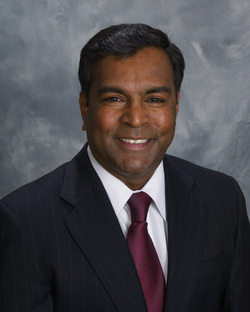Linton A. Mohammed
PH.D., D-ABFDE
Forensic Document Examiner

- Has been a Forensic Document Examiner for more than 35 years.
- Testified more than 250 times in the US, England, and the Caribbean as an expert witness in cases involving signature examinations, handwriting examinations, and document examinations.
- Certified by the American Board of Forensic Document Examiners, Inc. (ABFDE) since 1998.
- Holds a Diploma in Document Examination from the Forensic Science Society (United Kingdom) since 1996.
- Fellow of the Questioned Document Section of the American Academy of Forensic Sciences (AAFS).
- Board of Directors-American Academy of Forensic Sciences.
- Member-Academy Standards Board (2017-2024).
- Life Member and Past-President of the American Society of Questioned Document Examiners (ASQDE).
- Fellow of the Chartered Society of Forensic Sciences.
- Member of the Canadian Society of Forensic Science.
- Published 19 papers and articles.
- Author of “Forensic Examination of Signatures” (2019, Elsevier).
- Co-author of “The Neuroscience of Handwriting: Applications for Forensic Document Examination” (2012, Taylor & Francis).
- Conducted workshops on signature and document examination in Australia, Brazil, Canada, China, Croatia, Latvia, Poland, Saudi Arabia, Scotland, Turkey, and the US.
Linton Mohammed is pleased to announce his new book, "Forensic Examination of Signatures"
which was published by Elsevier on June 6, 2019. This book is focused on signature examinations and discusses complexity, signature styles, and differentiation of genuine, disguised, and simulated (forged) signatures. It explores possible areas of bias and suggests means to combat and reduce bias. Limitations of examinations involving documents bearing non-original signatures are discussed. The influence of age, illness and writing constraints on signatures are described. Research on validity and reliability of signature examinations are reported. There are chapters on Reporting and Conclusions and Digital Signatures. Three historical high profile cases which involved disputed signatures are reviewed.
Co-contributors to the book are Lloyd Cunningham, William Flynn, Kathleen Nicolaides, and R. Brent Ostrum. The Foreword was written by Professor David Kaye.
About Forensic Document Examination
Forensic Document Examiners (FDEs), often referred to as handwriting experts, handwriting analysts, or forgery experts, examine documents to determine their genuineness, source, content, or age. While the majority of the work involves the examination and comparison of signatures and handwriting, many cases are multi-faceted and require the examiner to compare inks, process paper for indented impressions, and evaluate any aspect of a document that may be of evidentiary or probative value. In one case, the absence of a pair of staple holes in two pages of a multi-page will was an indication of page substitution.
FDEs are consulted by law firms, financial institutions, insurance companies, government agencies, and other businesses in cases where there are allegations of forgery, alteration of documents, or fabrication of records. Typical civil cases are will contests, business contracts, deeds of trust, property transactions, medical records, and check frauds. Criminal cases usually involve homicides, suicide notes, threat letters, anonymous letters, and bank robbery demand notes.
In general, FDEs are usually required in any cases that involved disputed documents.